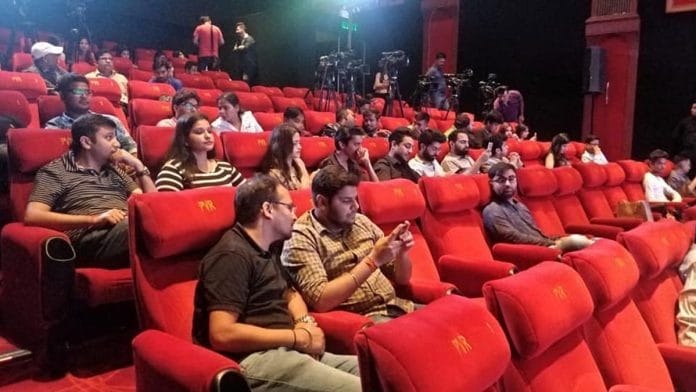If paying for overpriced popcorn at the cinema was not enough, bingeing on your favourite content at home is also about to become more expensive in Karnataka. The Cine and Cultural Activists (Welfare) bill, passed just last month, imposes a cess of up to two per cent on online streaming, movie tickets, and television channel subscriptions.
The aim is to provide financial assistance to those employed in the state’s cultural sector. This will be achieved by imposing a cess on multiple revenue-generating businesses in the sector, and potentially introducing another compliance mechanism for streaming services to ascertain their subscriber base in Karnataka.
The bill mandates the creation of a fund – with contributions from employers in Karnataka’s cultural industry, to support welfare measures for the workers in the industry. Failure to do so will result in legal penalties against employers. At the same time, it does not define who qualifies as an employer, leaving ambiguity about whether streaming services are included. After all, these companies may not employ people in Karnataka or have offices there–so would the obligations on employers apply to them?
Ignoring the devilish details
The bill does not clarify the extent of revenue-generating activities subject to the cess. By imposing it on movie tickets, subscriptions, and ‘all’ other revenue – the bill appears deliberately vague. Ignoring the devilish details seems like a calculated attempt to capture multiple revenue streams from businesses. While subscriptions are the main revenue source for streamers, supplementary activities like promotions, fan events, special screenings, content syndication and licensing, as well as partnerships with telecom providers, also contribute to their income.
The authorities suggest any revenue generated in Karnataka will attract the cess, but these policymakers must differentiate between core and supplementary activities, too.
For instance, the telecoms department last year specifically excluded non-telecom activities to ascertain the relevant revenue base of telecom firms. It addressed the telecom firms’ confusion about which activities must be considered for revenue base. The clarification relieved the firms from paying excess licence fees by accident — because they already pay eight per cent of the revenue base as licence fees to the government. Without such clarity, broad provisions in the bill are likely to lead to frequent industry requests for clarifications, creating operational hurdles.
Additionally, the bill does not specify how it will determine which subscribers of streaming services are based in Karnataka, potentially leading to new regulatory obligations and compliance outlays for this new calculus.
Similarly in Kerala, the Local Authorities Entertainment Tax (Amendment) Act 2013 – which introduced a cess of Rs 3 per movie ticket – failed due to the rise of online booking. The administration struggled to maintain accurate data on cess collection, rendering the law ineffective.
Also read: Karnataka gig workers bill shows bad design. Market-based social insurance model more practical
Boosting income through indirect tax
State governments, particularly in southern India, complain about low tax devolution from the central government. Karnataka, Kerala and Tamil Nadu argue their tax share is not proportionate to their contributions toward the central exchequer.
Karnataka Chief Minister Siddaramaiah has raised concerns about this issue, saying that the state contributed approximately Rs 4,30,000 crore annually but received only an eighth of that amount (Rs 50,000 crore) from the Union government. Some say that the real motive behind the cess appears to be increasing state revenue and not genuine welfare. State governments, not required to split cess proceeds with the Centre, are increasingly using such indirect taxes to boost their incomes.
Entertainment services, however, should not be made an easy target for expanding a state’s revenue stream. According to a 2024 report by cash logistics firm CMS, consumer spending on entertainment has nearly doubled since 2022. While this may seem lucrative, the burden of this levy will likely fall on consumers, making entertainment more expensive for everyone.
Besides, the cess targets entertainment consumption, not income. It’s a departure from the widely accepted principle of redistribution, known as Dalton’s transfer principle, which advocates for income transfer from the rich to the poor. By taxing entertainment, the state risks imposing a regressive burden on the economically disadvantaged, who will be forced to spend a larger portion of their income on leisure activities.
In its rush to increase revenue, the Karnataka government may end up stifling a well-functioning and fertile market, potentially deterring investment and innovation in the state’s entertainment industry. A smarter approach would be to find more equitable ways to fund social welfare without penalising consumers and businesses in the process.
The authors work at Koan Advisory Group, a technology policy consulting firm. Views are personal.
This article is part of ThePrint-Koan Advisory series that analyses emerging policies, laws and regulations in India’s technology sector. Read all the articles here.
(Edited by Zoya Bhatti)







The Congress is expert in destroying the economy with socialism. Siddaramaiah’s and his fellow members of the congress should have their wealth confiscated to fund their socialism.